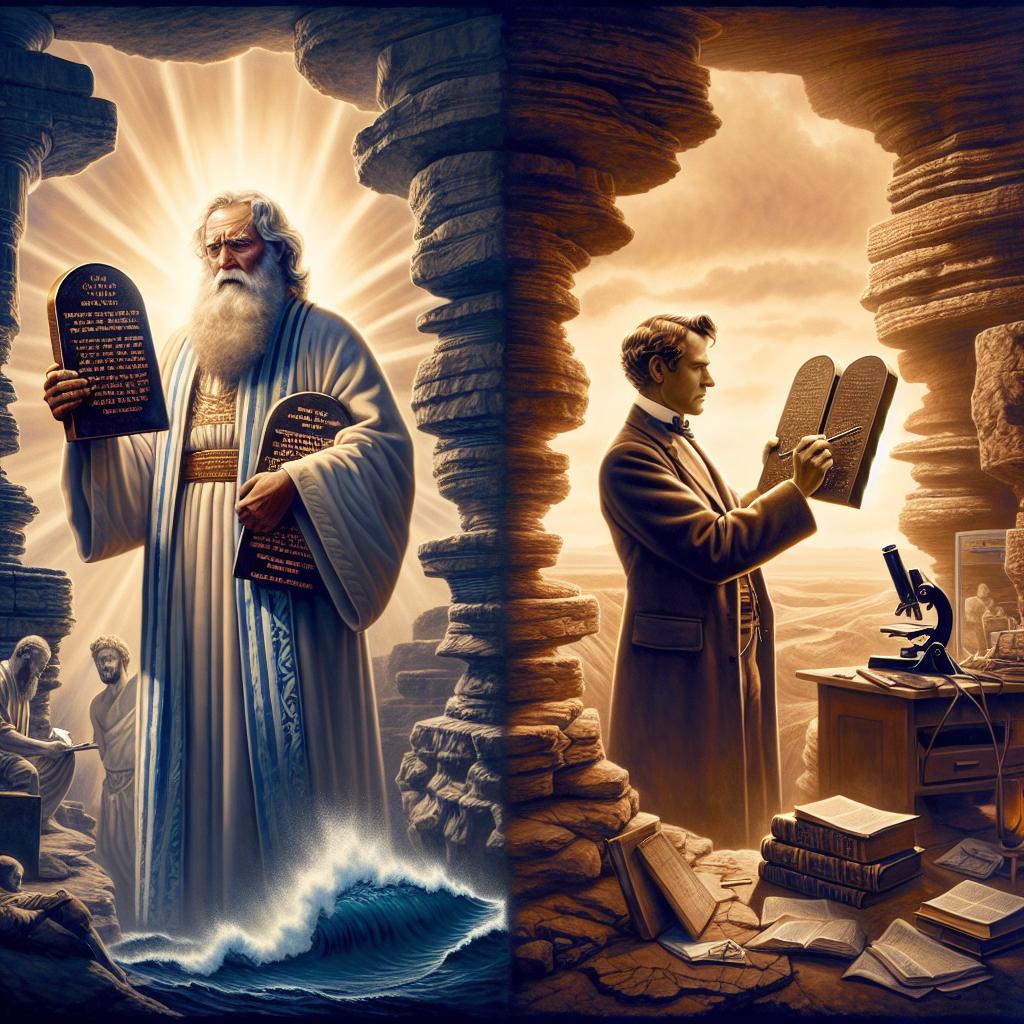
Unlocking Science's Truth: Charles Lyell Liberating Faith from Moses
Published: 10 September 2024
The Hidden Agenda of Charles Lyell: Freeing Science from Moses
Geology, as a scientific field, has played a significant role in shaping our understanding of Earth's history. However, it is essential to examine the motivations and biases of influential figures who have contributed to the development of geological theories. One such figure is Charles Lyell, a 19th-century geologist and lawyer known for popularizing the idea of an old Earth. But was Lyell truly viewing the rocks from a scientifically objective perspective? Let's delve into this topic and explore eight key questions related to Charles Lyell's hidden agenda of freeing science from Moses.
1. Who was Charles Lyell, and what were his contributions to geology?
Charles Lyell was a prominent geologist and lawyer in the 19th century. He is best known for his book "Principles of Geology," published in 1830. In this work, Lyell argued for an old Earth shaped by gradual processes over long periods. His ideas challenged the prevailing view that Earth's history was characterized by catastrophic events and a relatively young age. Lyell's influence extended beyond geology; his ideas laid the groundwork for Charles Darwin's theory of evolution.
2. What did Charles Lyell admit about his ideas in private correspondence?
In private correspondence, Lyell revealed his strongly anti-biblical ("anti-Mosaical") nature of his ideas. In a letter to fellow geologist Roderick Murchison in 1829, just before publishing "Principles of Geology," Lyell stated that he intended to make his sketch of geological progress popular while being conciliatory towards religious sentiments. He acknowledged that his work might not be well-received by the clergy due to its contradicting the biblical timeline of Earth's history.
3. What was Charles Lyell's agenda in relation to freeing science from Moses?
Lyell's agenda, as revealed in a letter to George Poulett Scrope in 1830, was to "free the science from Moses." He believed that treating the subject seriously would challenge the traditional religious understanding and potentially face resistance from the church. However, Lyell saw this as an opportunity to change the prevailing mindset and gain acceptance for his ideas. His aim was to convince others that there was no harm in questioning the traditional biblical interpretations of Earth's history.
4. How did Charles Lyell's ideas influence the acceptance of evolution?
Lyell's ideas on geology, particularly the concept of an ancient Earth, influenced Charles Darwin's thinking. By proposing a timeline that extended far beyond the biblical account, Lyell created space for evolutionary ideas to gain traction. Darwin's theory of evolution relied on vast amounts of time for gradual changes to occur. Lyell's work provided a framework that aligned with Darwin's theory, helping to pave the way for its eventual acceptance.
5. What were the consequences of Charles Lyell's agenda?
While Lyell's ideas had a significant impact on geology and the acceptance of evolution, they also had consequences that undermined a biblical worldview. His insistence on gradualism, the belief that geological processes acted at their current rates over time, led to the rejection of sudden or catastrophic events in Earth's history. This dismissal of catastrophic events contradicted biblical accounts such as Noah's Flood.
6. How did Charles Lyell deceive the church into accepting his false ideas?
Lyell strategically employed political game-playing and concealed his true intentions from the church. As a lawyer par excellence, he understood the power dynamics at play and sought to ensure his uniformitarian ideas would be accepted by religious authorities. Despite knowing that his ideas contradicted Scripture, he aimed to present them in a conciliatory manner to avoid immediate rejection. By exploiting the desire for intellectual respectability, Lyell deceived the church into embracing ideas that undermined the Gospel.
7. How did Charles Lyell set geology on the wrong path for over a century?
Lyell's influential work and deceptive tactics had long-lasting consequences for geology. His promotion of gradualism, while ignoring evidence for sudden or catastrophic events, skewed the understanding of Earth's history for over a century. Geologists who followed Lyell's lead dismissed or downplayed evidence of significant geological events such as floods, impacting their interpretations of Earth's past. It took time for geologists to recognize the limitations of Lyell's ideas and reintroduce concepts of catastrophic events into geological thinking.
8. What can we learn from Charles Lyell's hidden agenda?
Charles Lyell's hidden agenda serves as a cautionary tale about the importance of critically evaluating scientific theories and the motivations behind them. As Christians, we should approach scientific ideas with discernment, ensuring they align with biblical teachings. While science can provide valuable insights into the natural world, we must not compromise our faith in pursuit of intellectual acceptance. In studying Earth's history, we can appreciate the evidence for both gradual and catastrophic processes, recognizing that God's handiwork is evident in both. By engaging with scientific ideas honestly and faithfully, we can navigate the complexities of geology while remaining steadfast in our biblical worldview.
In conclusion, Charles Lyell's hidden agenda to free science from Moses had a profound impact on geology and the acceptance of evolutionary ideas. His motivations, revealed in private correspondence, demonstrated a deliberate intention to challenge biblical accounts of Earth's history. While his work contributed to scientific advancements, it also led to the rejection of catastrophic events described in Scripture. As Christians, we should be mindful of the biases and agendas that may influence scientific theories and continue to evaluate them through a lens grounded in biblical truth.
